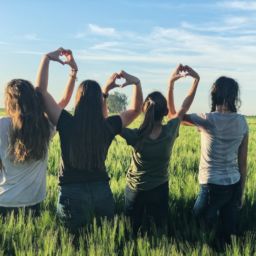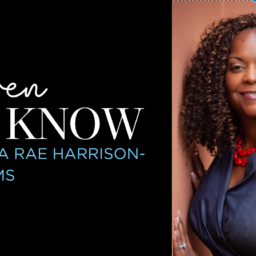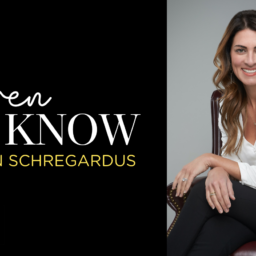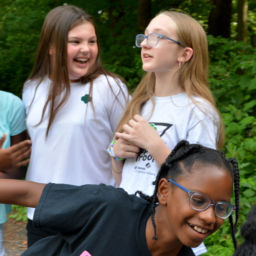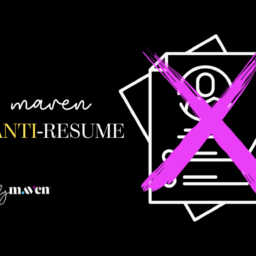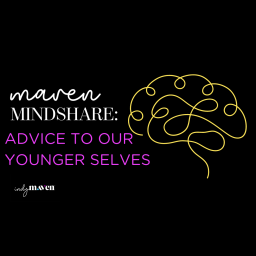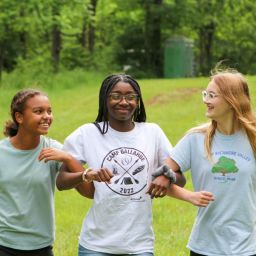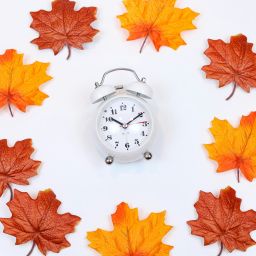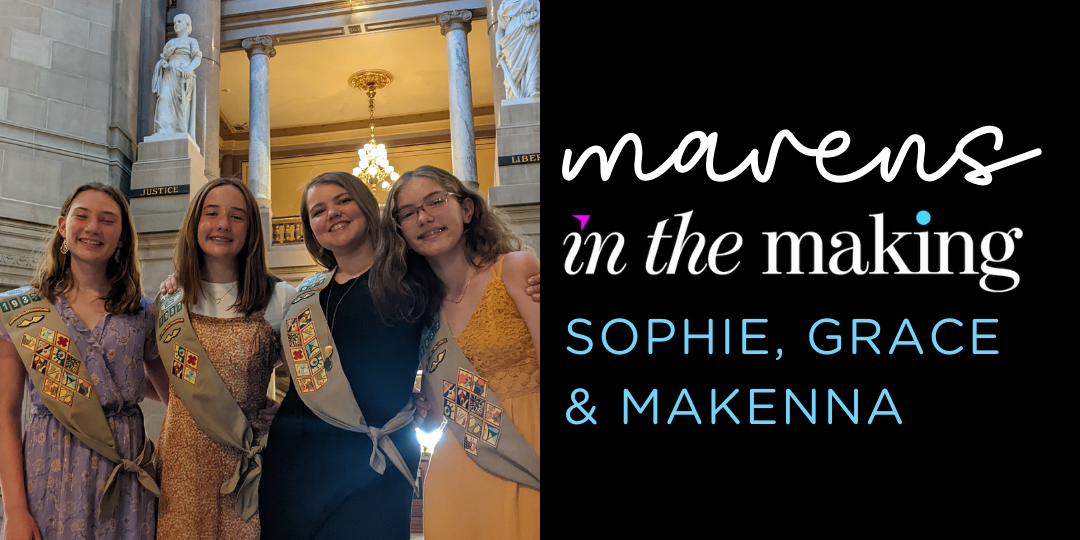
Welcome to Maven in the Making, where we celebrate the young women in our community who are poised to be future leaders.
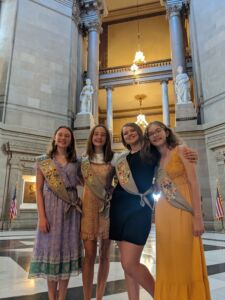
While doing some volunteer work with Turn Away No Longer, an Anderson, Indiana-based non-profit that works with foster families, four young women in Girl Scout Troop 1937 learned that among many other challenges foster children and their placement families face, they are often unable to make use of state parks. Facility entrance fees are often cost prohibitive to the families, because children in placement often have emotional and physical challenges that make them unable to stay in a single activity for long periods of time. The eighth graders from Fishers Junior High went to work to change the monetary barrier limiting those families’ opportunities. The result: Senate Enrolled Act 151.
Senate Enrolled Act 151, among other provisions, allows that the Indiana Department of Natural Resources won’t charge an admission fee to foster families who, “reside together in the same licensed foster family home, or other certain foster youth, for the use of any property owned or managed by the DNR for purposes of the statutes concerning state parks and recreation areas,” according to the legislation, authored by Sen. Kyle Walker (R-Lawrence).
The legislation was signed by Speaker Todd Huston on April 21, then went to Lt. Gov. Suzanne Crouch, who serves as the Senate President Pro Tempore, for her consideration. When Crouch signed on, the legislation moved to Gov. Eric Holcomb. As of this Monday, May 1, 2023, Gov. Holcomb signed the bill into law.
We spoke with some of the young women involved in this effort, and why they thought it was important to get involved.
Explain more about how this legislative idea came about.
Sophie: It really branched (out) from Turn Away No Longer and Katie’s Closet (a part of Turn Away No Longer that provides clothing free to foster children). We saw they were having a fundraiser so they could get families together at a state park and we thought that was unfair.
Grace: We did research and surveyed foster families. We found that if we lowered the cost barrier, more than 80 percent of foster families would take their families to state parks.
Once you have the idea, what’s the next step?
Grace: We heard that Sen. Walker was addressing an issue about foster children and car (insurance).
Makenna: Our troop leader (Cynthia Holladay) was able to get us in touch with Sen. Walker and we were able to go down to the Statehouse and present our PowerPoint to him. He said it was a good idea.
Grace: After we met with Sen. Walker, we knew we needed to get more attention on this bill, and how can you say no to Girl Scouts? The amount of people we’ve met with, I’ve lost count.
What were some of the fears you had doing this, and why was it important to face them?
Makenna: It’s really hard to start speaking out. Standing on the Senate floor, I was shaking so badly. But after getting into this process, that fear has stopped. Every emotion that used to swim in my chest is gone, it has dissipated. If you’re passionate about something, if you’re confident, you know you can’t do anything sitting down — you have to speak. These (foster) kids have gone through so much trauma, and one way to lower trauma is play. We wanted to lower the cost (of parks) and allow the kids and families to go to these places without worrying about money.
Sophie: Play is so important because it gives you an adrenalin rush and that creative outlet. (Foster children) don’t always have time to just play, because they are worried about when are they going to eat next, or where they are going (for care).
How important is it for young people to be involved in the legislative process?
Grace: Being politically involved is extremely important. Our generation needs to be represented. I hope our generation can make change, but the only way to make change is to be civically involved. I want our generation to be seen and heard. We are the future, you cannot underestimate us or doubt us, because we will make change.
Makenna: Our generation has a really biased view of everything that goes on in politics, we see all the bad in politics. You never hear what good come from it. Being part of this process, I realize people are making changes for good.
How did lawmakers and others respond to your work?
Makenna: I never felt like people were like, ‘Oh look at these cute little girls.’ They treated us with respect, they asked us questions and people were paying attention.
Grace: I feel like at the beginning they wanted to hear us out, but when we started speaking statistics, they took us seriously.
Sophie: Part of that is they don’t really get kids (speaking) in politics, they were intrigued by what we had to say. They understood when we started talking statistics.
What do you think you’ll take away from this experience? What do you hope others learn?
Grace: I think there’s always something to take away from every experience — life lessons like leadership, time management public speaking. And you can make a change if you put your heart and soul into it. I testified for our bill, and I want others to understand they can get support, too. There will always be people who will maybe try to break you down and make you think you’re not worth it, but there will be people who will build you up, too. You can make a difference.
Makenna: Even if someone empowers you, you might still have that mindset of ‘I’m too young.’ You can do something that starts little, and it can snowball into something so big, so huge. You are making a difference every day by just smiling at someone. I would just want people to take away that you can make a difference no matter what, no matter what
Sophie: Everyone has their own voice. You might think something is important and another person might not, but you can speak. You can use your voice, no matter your age or gender, to do something.
Lisa Renze-Rhodes is a journalism coach, advocate and practitioner who believes a long walk with dogs is the answer to almost any question. Also Mother Teresa was right, just do good anyway. Connect with Lisa on Twitter and LinkedIn.









